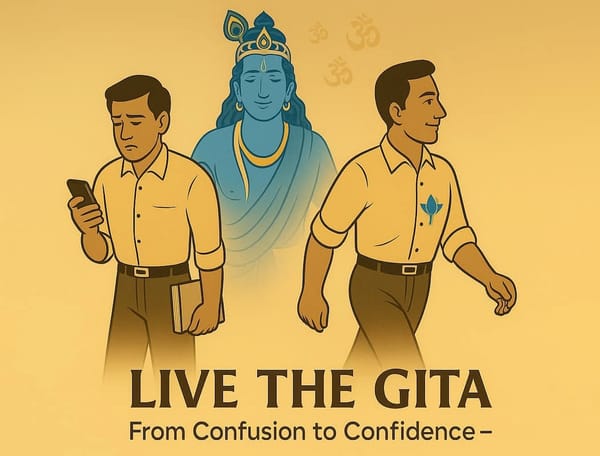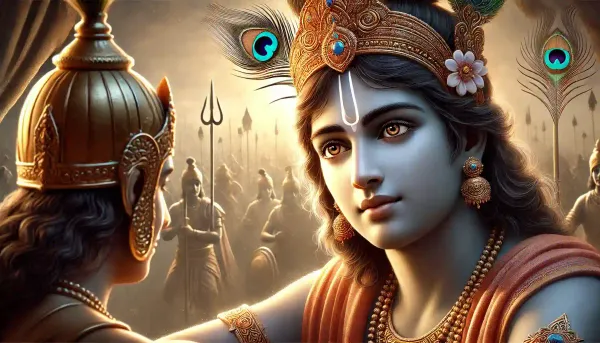The Bhagavad Gita, a treasure trove of spiritual knowledge, is one of the most widely translated books around the world. It forms a portion of the great Indian epic, the Mahabharat, written by Sage Vyasa and captures the instruction of Shri Krishna to Arjun on the battle field of Kurukshetra. The Mahabharat is divided into eighteen sections. The Bhagavad Gita is set in the sixth section, which is called the Bheeshma Parva. It comprises eighteen chapters of the section, beginning from Chapter Twenty-five, and continuing until Chapter Forty-two.
Since the Bhagavad Gita encapsulates most of the important aspects of the knowledge of the Vedas, it is also called Gitopanishad, or the Gitā Upaniṣhad. Despite predating several ancient civilizations, the Bhagavad Gita continues to be as relevant today as it was 5000 years ago. The Kauravas lead by Duryodhana had unjustly usurped the kingdom of Hastinapur from the Pandavas for several years by the time of the war of Kurukshetra. Alongside of that they had committed several atrocities against the Pandavas such as humiliating the Pandavas’ wife, Draupadi in front of the Kuru clan and trying to get the Pandavas killed after banishing them.
Arjun, one of the five Pandavas, was in a quandary like many of us find ourselves in. On the one hand his duty as a Kshatriya was to re-establish Dharma or righteousness by fighting against the Kauravas. On the other hand he was facing in battle his elders such as Bhishma, and his own kith and kin in the form of the Kauravas. Caught in this moral quandary Arjun became weak and disheartened. He threw down his weapons and fell at the feet of Lord Krishna to guide him on the right course of action. Shri Krishna in the position of the Guru then proceeds to enlighten Arjun with divine knowledge (gyan) and wisdom (vigyan), thus destroying the darkness at the root of Arjun’s despondency that threw him into inaction.
In the first six chapters of the Bhagavad Gita, Shri Krishna instructs Arjun on Karma Yoga, or the Yoga of uniting one’s actions with God. From Chapter 7 onwards, Shri Krishna shifts towards explaining how one can attain Him through the process of bhakti(exclusive devotion to Lord Krishna) and surrender. Particularly, Shri Krishna declares that he will illumine Arjun with the theoretical knowledge(gyan) of the Supreme Divine Personality, and also help him gain the inner wisdom(vigyan) regarding it. Shri Krishna makes a distinction between knowledge and wisdom – knowledge that arises from within as a consequence of spiritual practice or sadhana, is called wisdom. On realization of this knowledge, nothing further will remain to be known.
Watch this video “Bhagavad Gita [1/17] Chapter 7 – Swami Mukundananda – Implement the Knowledge” where Swami Mukundananda beautifully explains the difference between theoretical and realized knowledge.







